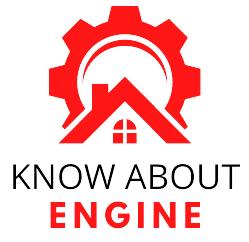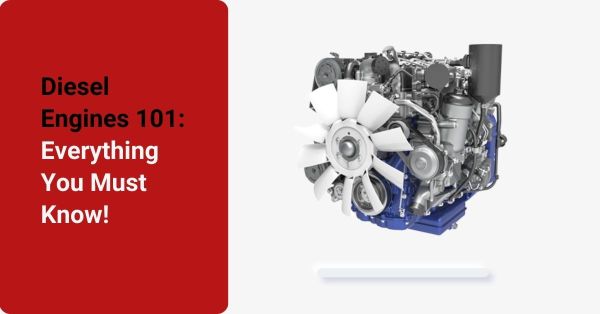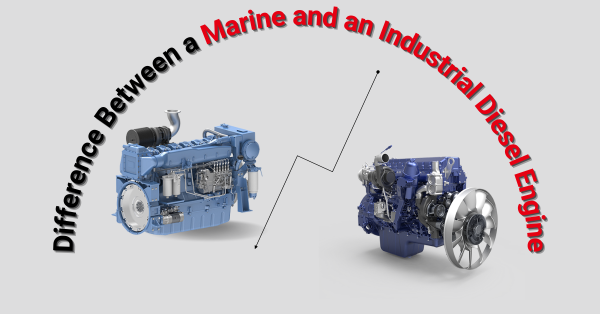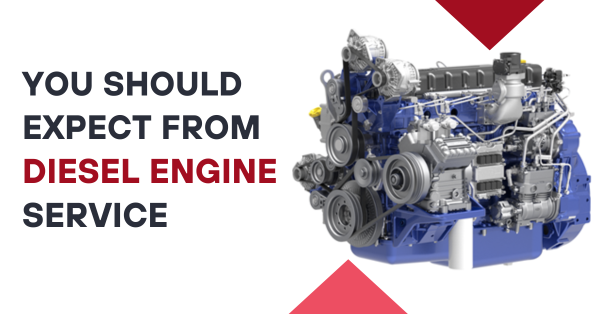Diesel engines are internal combustion engines that run on the principle of compression ignition. Unlike gasoline engines which use sparkle for ignition, diesel engines are particularly more advanced as they use the heat produced by air during the compression process.
Diesel engine manufacturers in India produce high-quality diesel engines at the best price. Only because of high-end technology and advanced engineering techniques, the diesel engines offer the end users high efficiency, durability, and high torque output that makes them useful in many areas of application.
The Anatomy Of A Diesel Engine
To understand the working process of diesel engines, let’s break down their key components:
- Cylinder block and pistons: The cylinder block provides a home for the cylinders where combustion takes place. The movement of the pistons within these cylinders is up and down so that the fuel and air get compressed and the crankshaft rotates during the power stroke.
- Fuel injection system: Through its fuel injection system, diesel engines dispense the diesel fuel in the exact timings and similar quantities required by the combustion chamber.
- Turbocharger: Most diesel engines contain a turbocharger that spins using exhaust gases to compress incoming air as it goes into the combustion chamber.
- Cooling system: During operation, diesel engines tend to generate a lot of heat. Therefore, they have a well-functioning cooling system that avoids overheating the engine and maintains maximum efficiency.
Benefits Of Diesel Engine
The diesel engines provide several groups of benefits, here are some of them:
1. Fuel Efficiency
Diesel engines are known for offering higher mileage efficiency than gasoline engines. This is because they have higher compression ratios and thermal efficiency which makes them more efficient. This implies a decrease in fuel expenditure, particularly in vehicles and equipment which run with very high fuel consumption levels, examples include trucks and heavy machines.
2. Providing Power
Compared to gasoline engines, diesel engines produce more power per unit of displacement. In addition to this, they achieve all these higher power outputs even with a smaller-sized engine. This results in nothing but more compact and lightweight designs that don’t compromise the engine performance.
Do you know why marine vessels and heavy types of machinery have these? It’s because all the features of diesel engines are advantageous in applications with very little space and weight, making them the best choice for propulsion and significant operation.
Therefore, the main reason for the use of diesel engines in these applications is that they have an excellent combination of compactness, power, efficiency and robustness, so engine owners can always rely on their individual apparatus quality and durability
3. Emission of Less Carbon Dioxide
If you choose the best Diesel Engine Manufacturer in India, they will make sure that their engines emit less carbon dioxide (CO2) per mile for their fuel efficiency. This makes them an eco-friendly option, especially when we talk about greenhouse gas emissions in vehicles that cover long mileage or operate for extended periods.
4. Highly Adaptable and Versatile
Multiple fuels have a very good friendship with diesel engines like biodiesel and synthetic diesel blends. They also go really well with renewable diesel obtained from animal fats, vegetable oils, and other waste materials. This offers superb flexibility in fuel sourcing, on the other hand, it promotes sustainability by reducing the usage of fossil fuels.
5. Operates In Extreme Conditions
A diesel engine is perfectly adapted for operation in harsh weather conditions such as cold weather, altitude, and off-roading. They have a better cold start and built-in ability to maintain their power output even under these conditions.
You May read: What You Should Expect from Diesel Engine Service?
Conclusion
Hopefully, you have understood how diesel engines work. They are favourably versatile and are used in transporting large vehicles like trucks, bulk cargo, dump trucks, and more. But, if you are not choosing a reliable Diesel Engine Manufacturer in India, you may face troubles in the future. If they are not in the market for very long, the chances of engine failure are high, so be careful.



